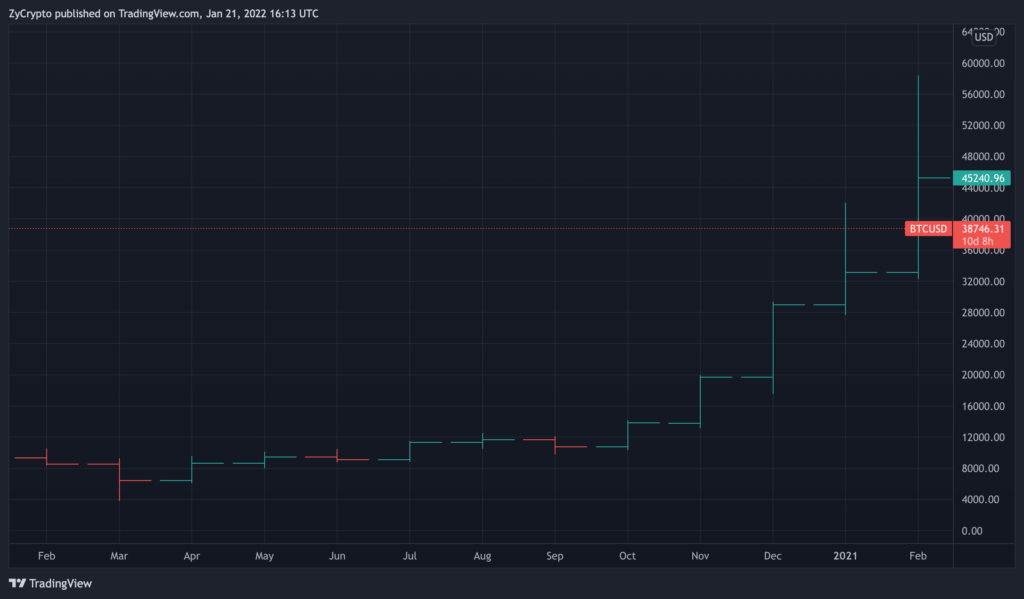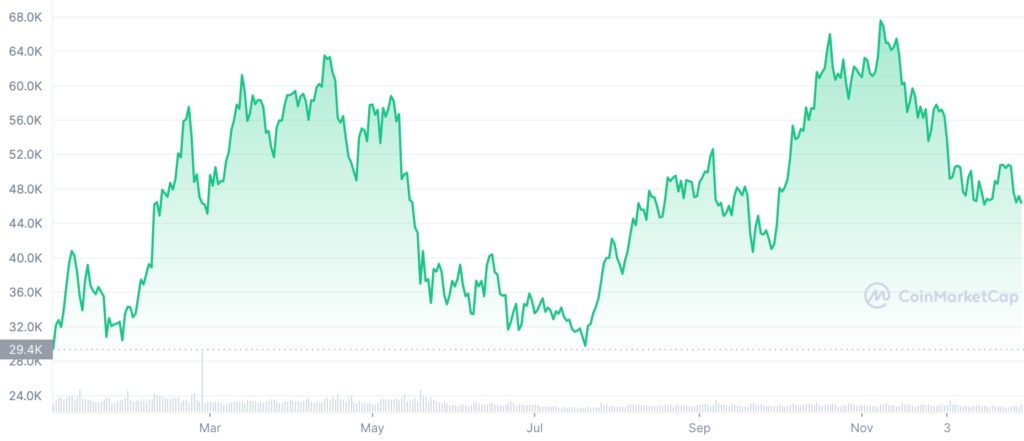- Over 5.7 million BTCs are currently held below purchase price value.
- At $38k, Bitcoin is down circa 40% from its November ATH, and the entire crypto market has recorded a $1.1 trillion total value scrape off.
- Chances of recovery are predictably slim as external stimulatory support in the face of a downtrend remains non-forthcoming.
Close to 30% of the total Bitcoin in circulation is reportedly held at loss, Glassnode reports. This latest insight suggests that around one-third of circulating BTCs, now valued below breakeven point, were released to exchanges during the periods from October to November when Bitcoin recorded a $69,000 valuation — its highest ever since inception in 2009.
At $38,917, the foremost crypto-asset is clinging firmly to a familiar critical resistance in hopes of support injection by bullish market forces. But the odds against a sudden recovery continue to stack high and here are the reasons.
The $38k resistance in 2020
The earliest memory of a $38k support since the turn of the decade was between May and July 2020. During this period, the pandemic and the resultant lockdown had stalled nearly all commercial activities, groveling the global economy to a halt.

The crypto market was not left out too and it took the financial intervention of many governments to pump both stock and crypto markets out of comatose.
The Sub-$40k resistance in 2021
Much recently, in 2021, a combination of China’s crypto clampdown and rising global concerns on Bitcoin energy consumption sent Bitcoin back to these levels again.
 
 

But as soon as it was able to exercise grit and weather the scrutinizing storm, BTC and the crypto market bounced back to impressive levels especially on the back of increased spending in the US market and growing adoption across Europe, North and South America, and Africa.
Now 2022, What next?
Now faced with a premature descent barely six months after, the situation is a bit different. China still resents Bitcoin and the US currently has four-decade high inflation to deal with which should naturally incentivize investors to wedge against value loss with cryptos.
With Fed’s recent announcement on going hawkish and raising interest rates thrice this year, treasury bonds could now become a more attractive buy option for investors, thereby leaving the stock market and crypto sector parched of dollar inflow.
Pitching itself against market forces by raising interest rates, Bitcoin will only survive further decline if the market hibernates without short-term sellers dumping on exchanges to seek growing gains in government bonds.


